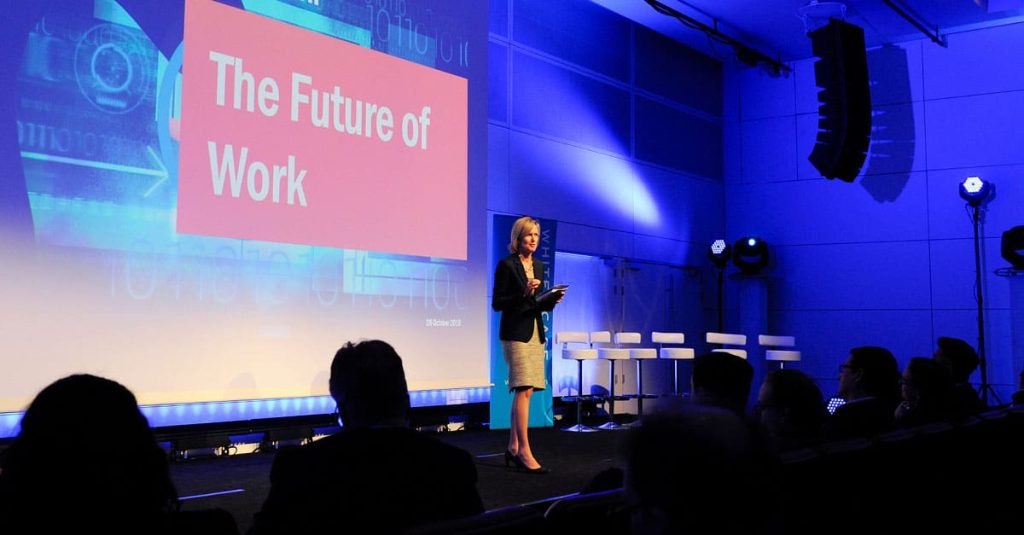Unlock the full potential of your conference with our top 5 strategies for effective promotion, ensuring maximum visibility and engagement.
Key Takeaways
- Leverage Social Media for Targeted Campaigns.
- Utilize Email Marketing for Personalized Invites.
- Partner with Influencers and Industry Leaders.
- Offer Early Bird and Group Discounts.
- Use Content Marketing to Highlight Speakers and Topics.
Conference marketing essentials
Promotion is key to success, no matter the type or scale of your conference. Whether it’s a small conference or a large-scale event, you need to ensure you’re getting the word out and reaching your target audience. As per Visme, 83% of event promoters and brands found that effective marketing and promotion increased their sales dramatically. A strong and well-developed event marketing plan will lead people to trust your brand, become curious about your conference, and ultimately purchase a ticket. Here are a couple of simple yet effective steps to leverage promotion as a tool for sales.
The first step in effective promotion is to understand your target audience and leverage the most appealing aspects of your conference to them. Highlighting what catches your audience’s attention at the get-go has been, continues to, and will remain the best foot-in-the-door strategy to hook clients onto your product.
After understanding your target audience’s expectations, and having caught their attention, you’ll now be at an advantage where you can begin heavily promoting your conference. However, you have to keep in mind the context in which your conference exists and which marketing and promotion strategies will best deliver your message to your audience. Fortunately, there are a number of ways to effectively promote your conference. In this blog, we will detail five of the best strategies to help you get the most out of your conference promotions.
How to market a conference
Leverage your conference’s keynote speakers
Keynote speakers can be extremely powerful promotional tools for your conference. Not only are they likely to draw a large crowd to the event, but they can also help you reach a wider audience. Utilizing their brand value and social media presence can be a great way to reach new potential attendees. Invite them to take part in interviews and podcasts related to their area of expertise to boost awareness of your event. You could even develop a podcast series specifically for your event that features your keynote speakers for even more exposure. Leveraging their network and contacts for further outreach is another great way to promote your conference.
You want to begin thinking about all the ways your target audience will be interested in the keynote speakers. After all, your speakers are the main characters of the event and people buy tickets to listen to what they have to say.
Target your audience through data-driven social media campaigns
Social media is one of the best ways to reach potential attendees. By targeting the right audience through data-driven campaigns, you can ensure maximum visibility for your conference. Start by identifying the key demographic and psychographics of your target audience. This will help you narrow down the platforms you should use and craft effective messages that will resonate with them. Once you have launched your campaigns, be sure to analyze the data from them to refine and improve future efforts.
However, before you begin executing your social media campaigns, do consider the content you create and the platforms you campaign on. You want to plan for diverse content that is compelling and stands out on social media platforms such as LinkedIn, Facebook, and Instagram. Be sure to be clear about who your keynote speakers are and are transparent in the content that you create.
Develop an email marketing campaign
Email marketing is another great tool for promoting your conference. To get the most out of it, you’ll need to create an accurate and up-to-date email list of potential attendees. Segment your email list by dividing it into different groups based on factors such as job title, industry, and past conference attendance. This will allow you to tailor your messages to different groups and increase their relevance. You should also focus on developing effective subject lines that will capture attention, as well as writing compelling email copy that appeals to readers.

One thing to take note of is to be wary of sending out too many emails. Your potential attendees will consider this to be spam-like content and will most likely ignore your emails. Instead, be sure to schedule emails at optimal times to maximize open rates and conversions. Additionally, design visually appealing and engaging emails. Use images, infographics, and videos to make the emails more engaging. Keep the design simple, and consistent, and use your brand colors and logo. Brevity and conciseness are key here, to keep the recipients of these emails engaged and active.
Create and distribute a press release
If you want your conference to reach a wider audience, creating and distributing a press release is an effective way to do so. Start by choosing the right media outlets for your message and crafting an effective headline that will grab attention. Make sure to include compelling copies that will engage readers, as well as all necessary information (dates, places, etc.). If possible, include quotes from keynote speakers or other participants to add further interest.
For a step-by-step guide on writing effective press releases, take a look at this article to help you get started.
Optimize your conference’s event website
And last but not the least, you want to optimize your event website. Utilizing SEO best practices is essential for maximizing visibility in search engine results pages (SERPs). Keeping content up to date with relevant information is also important, as is enhancing user experience to ensure visitors stay on the page longer. Having pre-designed blank templates in place can go a long way in standardizing formats while allowing you time to make any last-minute but critical updates.
Additionally, research relevant keywords that your target audience would most likely use to search on Google, Bing, or other search engines, could catapult results. You want to then create diverse content that leverages these keywords to optimize your website and drive traffic to it.
Promoting a conference can be a daunting task for event organizers and promoters, but it doesn’t have to be. By leveraging keynote speakers, targeting your audience through data-driven social media campaigns, developing an email marketing campaign, creating and distributing a press release, and optimizing your event website, you can effectively reach potential attendees, raise awareness and demand, capture interests leading to sales, and consequently ensure the success of your events.



